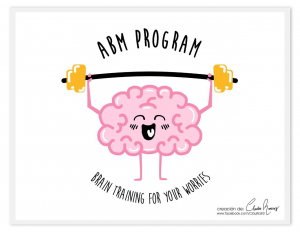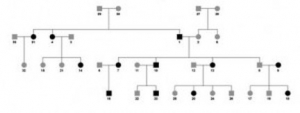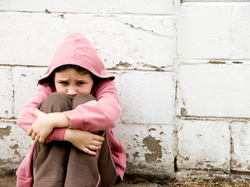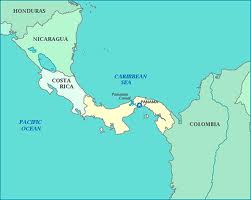Previous Research Studies
Mental Health Risk and Resilience among Rural Latinx Teens
Aim: To examine individual, familial, social and cultural factors that affect risk for anxiety and depression among adolescents ages 13-18 recruited from a rural community.
Adolescents were recruited from high schools in Imperial Valley, California and completed questionnaires as well as a clinical interview assessing depression and anxiety. This research project has helped us to 1) understand the relationship between environmental stressors, family factors, and anxiety/depression in a rural sample of predominantly Latinx youth, 2) identify factors that increase resilience in this population, and; 3) identify risk and protective factors to inform treatment development research for at-risk Latinx youth.
 Attention Training for Underserved Youth with Anxiety Study
Attention Training for Underserved Youth with Anxiety Study
Aim: The overarching goal of this study is to refine and test a developmentally sensitive Attention Bias Modification (ABM) intervention for low-income and rural Latino youth with using a community based service delivery model that relies on community healthcare workers (i.e., promotoras). We will also explore whether cognitive control may serve as a potential biomarker for pediatric anxiety as well as a moderator of treatment response in this group of underserved youth.
Fotonovelas as a mental health literacy tool for young adults with depression 
Aim: To examine the effectiveness of entertainment education as a mode to increase knowledge and service use, and decrease stigma among young adults with depression..
This project examined the effectiveness of a fotonovela – or graphic novel –compared to a standard brochure on help-seeking for Latinx with depressive symptoms (n=156) using a randomized controlled trial design.
 Culture & Brain Research Study
Culture & Brain Research Study
PI: Amy Rapp and Faculty Mentor: Denise Chavira
Aim: To examine how cultural values such as collectivism affect brain waveforms in a large sample of Latinx, non-Latinx White, and Asian adolescents using EEG research methods.
An unprecedented sample of 102 diverse adolescents (40 Latino, 40 non-Latino White, and 22 Asian adolescents) participated in EEG study. All adolescents completed three complementary computerized speeded-response and feedback response tasks designed to elicit the ERN and FRN, as well as a battery of self-report questionnaires assessing demographic, cultural, and psychopathology constructs. Results from regression models supported the hypothesis that the cultural value, collectivism, increases the salience of social context for adolescents, which is reflected in enhanced neural response to errors. ![]()
Promotora-Based Cognitive Behavioral Therapy: A qualitative study
Aim: To understand the acceptability of a new service mode of delivery (i.e., promotora guided, computer-assisted CBT) for treating low-income Latinos with anxiety and depressive disorders in community health centers.
As part of this project, we conducted qualitative interviews with stakeholders and focus groups with promotoras to inform the tailoring of an existing computer-assisted, CBT intervention. Based on feedback, we adapted the intervention and developed a training manual for promotoras to guide delivery.
a training manual for promotoras to guide delivery.
ICAN (Improving Care for Child Anxiety) – Qualitative interviews with parents of anxious children
Aim: To examine parents conceptualizations of child anxiety and variables that inhibit or facilitate service use for children with anxiety, using a qualitative interview methodology.
The study consists of qualitative interviews with parents of children with anxiety to help us understand factors that facilitate and/or inhibit service use such as perceptions of need, stigma, and logistical barriers to treatment. 39 parents participated in these interviews. 30% of the participants were Latino which has allowed the research team to examine themes that might be unique to this group.

![]()
UCAN (Understanding Child Anxiety Now) – Treatment barriers and facilitators
Aim: To understand individual, provider, and system level variables that facilitate and inhibit mental health service use among children with DSM anxiety disorders.
As part of this study, 74 children and 75 parents/caregivers participated in a semi-structured diagnostic interview related to childhood emotional and behavioral functioning and completed measures related to anxiety, services utilization, and barriers to treatment. Findings from this study have been used to inform strategies to improve engagement for families seeking service for children who have anxiety disorders.
![]()
Cool Kids-San Diego; Examining the feasibility of two modes of Cognitive Behavioral Therapy in a pediatric primary care setting
Aim: To demonstrate acceptability and feasibility of a cognitive behavioral therapy intervention for child anxiety disorders delivered in the pediatric primary care setting or via telephone.
48 children (age 8-13) were recruited from three primary care clinics and randomized to one of two conditions: traditional CBT delivered in-person by a therapist or, parent-mediated, bibliotherapy with therapist support by telephone. The primary focus of this project included issues of feasibility such as acceptability, adherence, attrition, and satisfaction, associated with these two modes of service delivery in the primary care setting. ![]()
“Ninos Valientes” – Parent-mediated, Therapist-supported CBT for Rural Latino Youth with Anxiety
Aim: To examine the feasibility, tolerability, acceptability, and safety of two modes of service delivery for a translated and tailored version of a CBT program, for rural Latino youth with anxiety disorders.
32 families were recruited for this study and were randomly assigned to one of two conditions: parent-mediated, bibliotherapy with therapist support by telephone, or a self-administered CBT program, with the option to initiate contact with a child anxiety therapist as needed. Qualitative interviews were conducted throughout the study to examine issues of feasibility and adherence. ![]()
Obsessive Compulsive Disorder (OCD) Genetics Study – Costa Rica
Aim: To identify susceptibility genes for OCD using several complimentary forms of genetic approaches, including candidate gene studies, traditional family (pedigree) based linkage studies, association studies using nuclear families (affected individual and their parents), and case-control studies.
This is a multi-site study involving the University of California, San Francisco (UCSF), Hospital de los Niños (in Costa Rica), University of California, San Diego (UCSD), University of Southern California (USC) and University of California, Los Angeles (UCLA). The study involves the collection of DNA samples and diagnostic interview with 1000 affected individuals with OCD and their family members (about 300 families). The proposed long-term goals of this project are to determine specific susceptibility genes that increase (or decrease) risk of acquiring OCD, and to identify genetic markers that influence OCD pathogenesis, disease course, and treatment response.

![]()
Risk and Resilience Study – Colombia and Costa Rica
Aim: To provide information about the prevalence of anxiety and obsessionality traits and resilience, and their association to childhood psychiatric disorders in a sample of school-aged children from two Latin American populations: the Central Valley of Costa Rica and Bogotá, Columbia.
This is a multi-site study involving the University of California, Los Angeles (UCLA), University of California San Francisco (UCSF), Clínica Herrera Amighetti, Escazú, and Universidad de los Andes (University of the Andes). Approximately 600 students from Colombia were screened, and 500 from Costa Rica; clinical interviews have been conducted with approximately 200 students.






